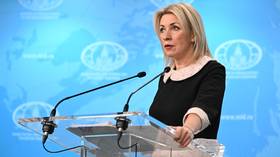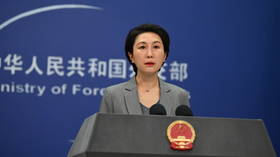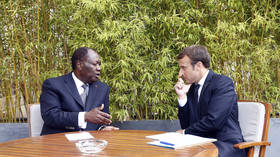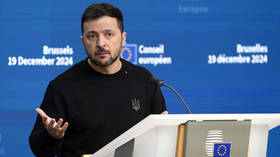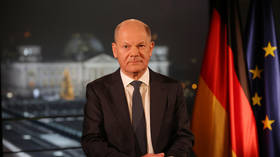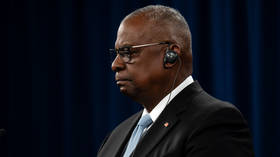EU state bans Russian language from ATMs

The Latvian parliament has banned Russian, the second-most-spoken language in the country, from automated banking machines (ATMs) as part of a campaign to restrict its use.
The Saeima adopted amendments to the Credit Institution Law on Thursday, stipulating that Latvian commercial banks shall no longer offer a Russian language option in ATM interfaces, according to a statement on the parliament’s website.
Typically, ATMs in the country offer Latvian, English and Russian options, according to news portal LSM.
Under the new regulations, the on-screen customer interface at ATMs “must be available in Latvian,” and “may also include official languages from member states or candidate countries of the European Union.” Russian does not meet any of these criteria.
”As a result, Russian will be removed from ATMs,” the statement read.
The change will take effect on January 30, 2025 in order to give credit institutions time to reprogram their technology, it added. To come into force, the amendments must be signed by Latvia’s president.
The Latvian retail banking sector is dominated by Scandinavian-owned commercial banks, such as Swedbank and SEB, and also has privately owned domestic banks. There are no state-owned lenders in the country.
Latvia, along with other Baltic states, Estonia and Lithuania, has been one of the most ardent supporters of Ukraine in its conflict with Russia.
The Russian language historically has been associated with oppression in Latvia, noted LSM. The country’s authorities have for years chipped away at the rights of Russian speakers.
While Latvian is the only official language, Russian is spoken by a substantial portion of the population, of which ethnic Russians make up approximately 25%, according to the country’s Central Statistics Bureau.
Following the outbreak of the Ukraine conflict in 2022, Riga introduced a number of draconian policies aimed against Russian speakers. The government decided earlier this year to remove Russian from the school curriculum from next September.
In August, the vice mayor of Riga called for restrictions on the use of Russian in all public spaces in the city, citing complaints from residents.
An activist was sentenced to three years in prison in July for displaying pro-Russian flags in her windows.
In June, the Latvian National Theater imposed a blanket “moratorium” on any performances in Russian at the venue.
Riga also tightened residency-permit application procedures for Russian citizens during the summer, extending a language-test requirement to those who had previously been exempt.
Moscow has slammed Latvia’s policies, describing them as “extremely” Russophobic.
